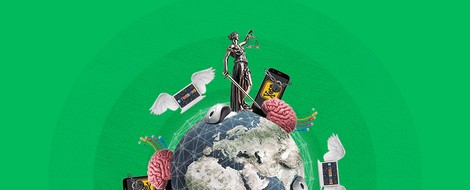Your podcast discovery platform
Curious minds select the most fascinating podcasts from around the world. Discover hand-piqd audio recommendations on your favorite topics.

piqer for: Global finds Technology and society
Prague-based media development worker from Poland with a journalistic background. Previously worked on digital issues in Brussels. Piqs about digital issues, digital rights, data protection, new trends in journalism and anything else that grabs my attention.
What Computers Can Tell Us About Religion
Last week, Sigal Samuel, Religion Editor at The Atlantic, looked at Modeling Religion Project, a fascinating research that uses computational models to study religion. In essence, the researchers take real-world demographic data to create virtual simulations that test how various societal factors influence religiosity and how, in turn, faith influences human behaviour. One of their findings, for example, is that certain key factors – existential security, personal freedom, pluralism, and education – contribute to the development of a more secular society.
The project also tackles other complex social processes, such as group formation, religious leadership, ritual patterns or extremism. By examining how certain actions could affect the religious makeup of a country, the researchers hope to guide governments in creating more effective integration policies that could help address the urgency of the global migration and refugee crises. But putting aside the reliability of the research method, is this even ethical? Just imagine that the chilling laws on immigrant 'ghettos' recently introduced in Denmark were aided by a computer model.“The goal of the project is to give politicians an empirical tool that will help them assess competing policy options so they can choose the most effective one. It’s a noble idea: If leaders can use artificial intelligence to predict which policy will produce the best outcome, maybe we’ll end up with a healthier and happier world. But it’s also a dangerous idea: What’s “best” is in the eye of the beholder, after all."
The article discusses an important and highly relevant topic: in the end, four-fifths of the world’s population identified with a religious group, according to a 2012 survey by the Pew Research Center. Perhaps most remarkably, though, the author manages to take a subject that has preoccupied humanity since ancient times and to weave in technology, something that doesn't usually come up when discussing faith.
